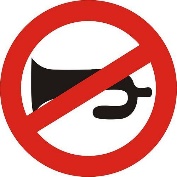|
SỞ GD – ĐT THÀNH PHỐ HỒ CHÍ MINH ĐỀ THI THỬ SỐ 3 |
KỲ THI TUYỂN SINH VÀO LỚP 10 Thời gian làm bài: 90 phút |
Họ và tên học sinh:.................................................................................................................................................
- Choose the word (A, B, C or D) whose underlined part is pronounced differently from the others.
- Choose the word (A, B, C or D)whose main stress is placed differently from the others in each group.
- A. suggested B. remember C. restaurant D. increase
- A. population B. government C. understand D. scientific
- Choose the word / phrase (A, B, C or D) that best fits the space in each sentence.
A. typhoon B. pollution C. charity D. edition
A. compulsory B. ordinary C. unique D. violent
A. environment B. deforestation C. disaster D. energy
A. separated B. ordered C. predicted D. received
A. didn’t correspond B. hasn’t corresponded C. doesn’t correspond D. won’t correspond
A. is polluted B. is polluting C. pollutes D. will pollute
A. to speak B. speaking C. speak D. spoke
- Choose the best answer (A, B, C or D) for the following picture or sign.
|
B. Speed limit for cars under 40 tons |
|
|
|
- Choose the word (A, B, C or D) that best fits the blank space in the following passage.
- A. way B. thing C. part D. path
- A. quickly B. hardly C. totally D. effectively
- A. with B. in C. on D. of
- A. way B. news C. information D. thing
- A. enough B. a lot C. much D. some
- A. after B. away C. through D. out
- Read the passage, then decide if the statements that follow it are True or False
- April Fools’ jokes can be sometimes heard on newspaper. ____________
- Don’t believe the jokes on the radio, or in newspaper or you will be an April Fool. ____________
- Everyone believes that April Fools’ Day started in the 1500s. ____________
- Although Americans don’t know where and when April Fools’ Day began, they like it. ____________
Read the passage again and choose the best answer.
A. kind B. violent C. considerate D. generous
A. There are a lot of hypothesis about the origin of April Fool’s Day.
B. A lot of violent games take place on April Fool’s Day.
C. April Fool’s Day is celebrated only in Europe.
D. The press takes full advantage of topics on April’s Fool’s Day.
- Use the correct form of the word given in each sentence.
- We find it _________________________________ to go on a picnic in a jungle rainforest. (interest)
- You must __________________________________________yourself with the rules here. (family)
- We need further ____________________________ but we are uninformed about anything. (inform)
- ____________________________ is a very attractive job nowadays. (advertise)
- This ________________ story book is the best seller. It is printed in both Japanese and English. (language)
- Mr. Obama has to make a ______________________________ at the White House today. (speak)
- Put the words in the correct order to make meaningful sentences.
- Rewrite each of the following sentences in another way so that it means almost the same as the sentence printed before it.
|
SỞ GD – ĐT THÀNH PHỐ HỒ CHÍ MINH ĐỀ THI THỬ SỐ 3 |
KỲ THI TUYỂN SINH VÀO LỚP 10 Thời gian làm bài: 90 phút |
I. Choose the word (A, B, C or D) whose underlined part is pronounced differently from the others.
- A. watches /iz/ B. misses /iz/ C. makes /s/ D. wishes /iz/
- A. book /ʊ/ B. pool /uː/ C. school /uː/ D. soon /uː/
II. Choose the word (A, B, C or D) whose main stress is placed differently from the others in each group.
- A. suggested /səˈʤɛstɪd/ B. remember /rɪˈmɛmbə/
C. restaurant /ˈrɛstrɒnt/ D. increase /ɪn’kriːs /
- A. population/ˌpɒpjʊˈleɪʃən/ B. government /ˈgʌvnmənt/
C. understand /ˌʌndəˈstænd/ D. scientific /ˌsaɪənˈtɪfɪk/
III. Choose the word / phrase (A, B, C or D) that best fits the space in each sentence.
- C. Kiểm tra từ vừng, phải dịch nghĩa: concern (buổi hòa nhạc) typhoon (bão), pollution (sự ô nhiễm), charity(từ thiện), edition (sự xuất bản).
Dịch câu: Học sinh của tôi tổ chức một buổi hòa nhạc hàng năm để gây quỹ từ thiện.
- D. Kiểm tra từ vựng: compulsory (bắt buộc), ordinary (thông thường), unique (duy nhất), violent (bạo lực)
Dịch câu: Trẻ em không được phép xem phim bạo lực.
- A. Kiểm tra từ vựng.
- C. Kiểm tra từ vựng: hurricane (bão cấp số 8), separate (phân chia), order (ra lệnh), predict (dự đoán), receive (nhận)
Dịch câu: Bão được dự báo sẽ đến bờ biển vào sáng mai.
- B. Chia thì.
Dấu hiệu: mệnh đề since + mốc thời gian ở quá khứ thì mệnh đề còn lại chia ở thì hiện tại hoàn thành: S + have/has + V3
- C. Đại từ quan hệ.
Dấu hiệu: A person (chỉ người, chủ ngữ), supply (động từ)
Ta có:
|
S + [who + V + …..] + Vchính + ….
|
- A. Chia động từ.
Dấu hiệu: có chữ “by”, do đó chia động từ ở thể bị động.
- B. Chia động từ.
Dấu hiệu: suggest + V-ing
- C. Chọn giới từ.
Dấu hiệu: It’s very nice/kind + of you + to V0: Rất vui/ Rất tốt khi được bạn làm gì đó.
- A. Chọn giới từ
Dấu hiệu: December là tháng. Giới từ theo trước tháng là in
IV. Choose the best answer (A, B, C or D) for the following picture or sign.
- C
- B
V. Choose the word (A, B, C or D) that best fits the blank space in the following passage.
- C. part
- A. quickly
- A. with
- C. information
- A. enough
- D. out (run out: hết hàng)
Ngày nay, máy tính đóng (17) một phần rất quan trọng trong cuộc sống hàng ngày của chúng ta. Máy tính có thể làm việc với thông tin nhanh hơn nhiều (18) so với con người bởi vì chúng có thể làm việc (19) với nhiều thông tin cùng một lúc. Chúng có thể giữ thông tin trong một thời gian dài. Máy tính không hoàn toàn hoàn hảo.
Cân nhắc về việc sử dụng máy tính ở cả cửa hàng và văn phòng. Các cửa hàng lớn, đặc biệt là các chuỗi cửa hàng có chi nhánh trên cả nước, phải xử lý lượng (20) thông tin rất lớn. Họ phải đảm bảo rằng có đủ (21) hàng hóa trên kệ để khách hàng mua, họ cần có thể đặt hàng lại trước khi hết hàng (22), để quyết định những thứ nào đang bán chạy, v.v.
VI. Read the passage, then decide if the statements that follow it are True or False.
April 1st is April Fools’ Day. Many people like to play jokes or tricks on this day. The jokes are for fun only. They are not harmful or mean. Sometimes you can hear April Fools’ Day jokes on the radio or television. Newspapers often have silly stories on April 1st too. Some silly headlines are on the next page. If you believe the jokes on the radio, TV, or in the newspapers, you will be an “April Fool”
Nobody knows where and when April Fools’ Day started. Some people believe it started in France in the 1500s. Some people think it started long ago in Italy. Other people believe it started in India.
It doesn’t matter where or when April Fools’ Day began. American like it because they can play jokes on friends and relatives.
- FALSE. Từ khóa là sometimes và newspaper. Câu văn Newspapers often have silly stories on April 1st too
- TRUE. Từ khóa believe the jokes. Câu văn If you believe the jokes on the radio, TV, or in the newspapers, you will be an “April Fool”
- FALSE. Từ khóa everyone và 1500s. Câu văn Some people believe it started in France in the 1500s.
- TRUE. Từ khóa American. Câu văn It doesn’t matter where or when April Fools’ Day began. American like it because they can play jokes on friends and relatives.
- B. violent
- A. There are a lot of hypothesis about the origin of April Fool’s Day.
VII. Use the correct form of the word given in each sentence
- Đáp án: interesting
- Dấu hiệu: sau must + V0: familiarize
- Cụm danh từ: “further information” (thêm thông tin)
Đáp án: information
- Dấu hiệu: đứng đầu câu, sau chỗ trống là “is”, do đó chỗ trống phải danh từ đóng vai trò là chủ ngữ.
Đáp án: Advertising/ Advertisement
- Dấu hiệu: Trước chỗ trống là “This”, sau chỗ trống là “story book” (danh từ). Do đó, chỗ trống phải là tính từ để bổ nghĩa cho danh từ. Vế sau có ngôn ngữ Pháp và Anh nên tính từ mang nghĩa “song ngữ”
Đáp án: bilingual (song ngữ).
- Dấu hiệu: trước chỗ trống là mạo từ “a”, sau chỗ trống là “at”, do đó chỗ trống là danh từ.
Đáp án: speech (“make a speech”: phát biểu).
VIII. Put the words in the correct order to make meaningful sentences.
- With all the modern facilities, doing housework is still very time-consuming.
Dịch: Với tất cả các phương tiện hiện đại, làm việc nhà vẫn còn rất tốn thời gian.
- I would like to express my admiration for his profundity of knowledge.
Dịch: Tôi muốn bày tỏ sự ngưỡng mộ đối với kiến thức uyên thâm của ông.
IX. Rewrite each of the following sentences in another way so that it means almost the same as the sentence printed before it.
- Câu gốc là câu rút gọn chủ ngữ khi 2 mệnh đề có cùng chủ ngữ.
- Nếu hai mệnh đề xảy ra đồng thời hay chia cùng thì: V-ing chuyển lên đầu câu.
- Nếu hai mệnh đề xảy ra theo thứ tự trước sau thì: Having + V3 chuyển lên đầu câu.
- Hiện tại hoàn thành – Hiện tại đơn.
- Quá khứ hoàn thành – Quá khứ đơn.
- Quá khứ đơn – Hiện tại đơn.
Câu gốc có vế 2 là quá khứ hơn, do đó vế 1 là quá khứ hoàn thành.
Đáp án: After they had made all the arrangements, they decided to go anyway.
- Dạng câu chuyển câu trực tiếp sang câu gián tiếp.
Nếu câu trực tiếp là câu hỏi:
- Chuyển said to → ask
- Giữ nguyên từ để hỏi (Why, Where, When,…)
- Đảo chủ ngữ lên trước trợ động từ.
- Lùi thì.
- Đổi chữ ngữ, tân ngữ, sở hữu cách, trạng từ chỉ thời gian.
Đáp án: She asked Tom why he didn’t take a bus.
- Why didn’t you either lock or put the car into the garage?
- Dạng câu tìm từ đồng nghĩa với từ trong câu gốc: excited = looking forward to + V-ing.
Đáp án: I am looking forward to the coming festival.

